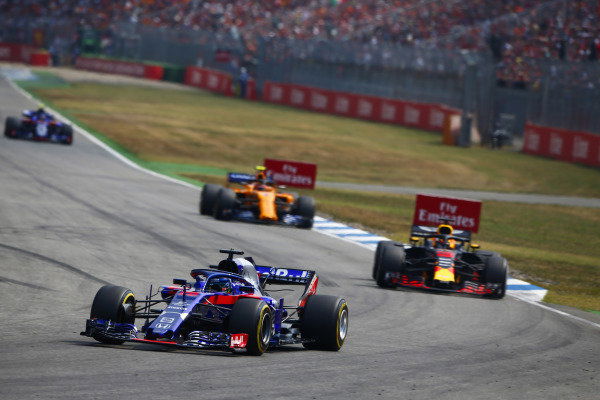
via Imago
Toro Rosso

via Imago
Toro Rosso
Austrian drinks company, Red Bull is one of the biggest spenders in Formula One. The energy drinks giant spends $107.1 million into the works Red Bull team annually. However, the junior outfit hasn’t been forgotten either.
Toro Rosso‘s financial statements aren’t as easily accessible as it’s older counterpart though. But, they revealed that in 2016 Red Bull paid the team $83.3 million. This investment helped stabilise Toro Rosso’s 2017 campaign inspite of finishing seventh.
Toro Rosso has spent $153.5 million on creating its cars and had a $1.5 million tax bill. This has resulted in a $1.9 million net profit that helped offset Red Bull’s turbocharged investment.
ADVERTISEMENT
Article continues below this ad
Red Bull soon put Toro Rosso up for sale and in 2011 one writer claimed that Abu Dhabi’s sovereign wealth fund “Aabar has acquired a minority shareholding in the team (around 40 percent) and has an option to increase that to gain control (probably around 60 percent).”
ADVERTISEMENT
Article continues below this ad
Like its bigger brother, Toro Rosso drives exposure for Red Bull’s brand which is emblazoned on its cars. Although it needs almost as much funding, it hasn’t performed as well and has been stuck in the slow lane this year. The highlight has been French driver Pierre Gasly almost getting the team on the podium with a fourth place in the Bahrain Grand Prix but it currently lies in eighth, one spot lower than it finished last year.

via Imago
Red Bull
The dip in performance was a result of switching from Renault engines to Honda. Red Bull Racing recently announced that it too has put the brakes on its partnership with Renault and will also use Honda engines from next year. If its results reverse its prize money would follow suit and this could be crucial to Red Bull’s future in F1.
ADVERTISEMENT
Article continues below this ad
Red Bull appears to have burned its bridges with Renault and it is unlikely that it would be able to get engines in future from Ferrari or Mercedes – F1’s other manufacturers – as they are its main rivals. It has fostered a partnership with Aston Martin which seemed set to build its own F1 engine but this plan appears to have stalled in recent months. It leaves Honda holding the keys at a pivotal moment.
The teams’ race contracts expire at the end of 2020 and F1’s owner, Liberty Media, plans to reduce the bonuses paid to the leading lights after that. Red Bull is one of the biggest beneficiaries as it receives an estimated $37.7 million before a single race begins. If Liberty’s changes make a dent in this, and the prize money falls at the same time, Red Bull may decide not to sign a new contract and instead bring the chequered flag down on its time in F1.
ADVERTISEMENT
ADVERTISEMENT
ADVERTISEMENT
ADVERTISEMENT

